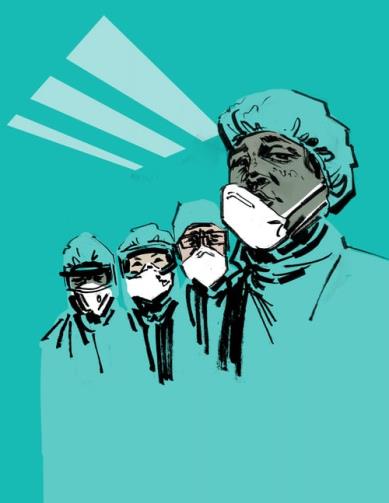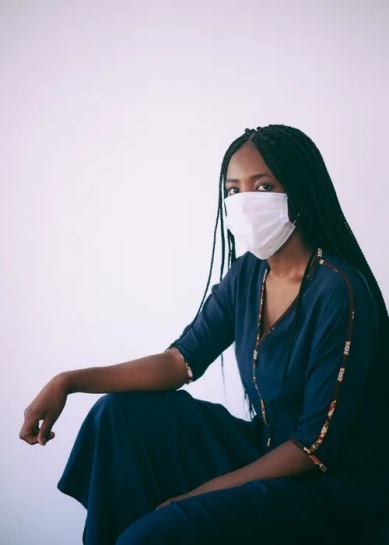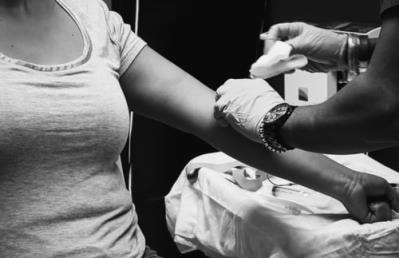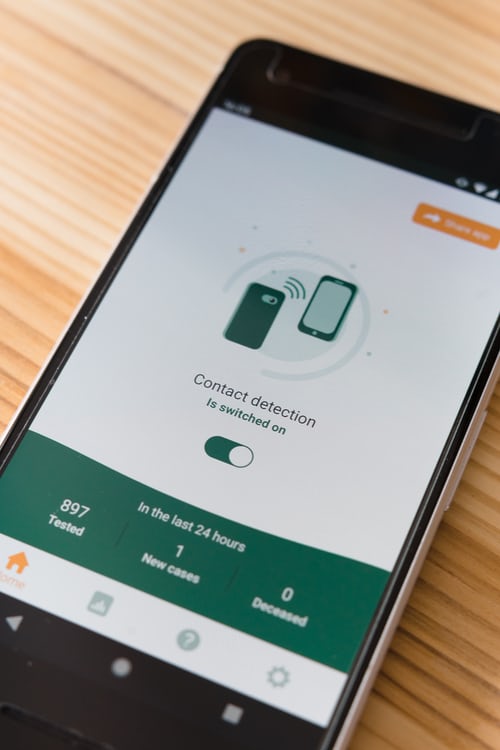Protect Yourself
Precautionary measures
Older adults and people who have severe underlying medical conditions like heart or lung disease or diabetes seem to be at higher risk for developing more serious complications from COVID-19 illness. More information on Are you at higher risk for serious illness?.
Top 3 measures
Use paper tissues
When a person breaths in droplets from a person with COVID-19
Avoid direct contact
By touching infected people or objects, then touching their eyes, nose or mouth
Wash your hands regurly
The virus spreads is transmitted through coughing and sneezing



Other important information
There is currently no vaccine to prevent coronavirus disease 2019 (COVID-19). The best way to prevent illness is to avoid being exposed to this virus. The virus is thought to spread mainly from person-to-person. Between people who are in close contact with one another (within about 6 feet). Through respiratory droplets produced when an infected person coughs or sneezes. These droplets can land in the mouths or noses of people who are nearby or possibly be inhaled into the lungs.
Clean your hands often Wash your hands often with soap and water for at least 20 seconds especially after you have been in a public place, or after blowing your nose, coughing, or sneezing. If soap and water are not readily available, use a hand sanitizer that contains at least 60% alcohol. Cover all surfaces of your hands and rub them together until they feel dry. Avoid touching your eyes, nose, and mouth with unwashed hands.
Precautionary measures
Clean and disinfect Clean AND disinfect frequently touched surfaces daily. This includes tables, doorknobs, light switches, countertops, handles, desks, phones, keyboards, toilets, faucets, and sinks. If surfaces are dirty, clean them: Use detergent or soap and water prior to disinfection.To disinfect: Most common EPA-registered household disinfectants will work. Use disinfectants appropriate for the surface. Options include: Diluting your household bleach. To make a bleach solution, mix: 5 tablespoons (1/3rd cup) bleach per gallon of water OR 4 teaspoons bleach per quart of water Follow manufacturer’s instructions for application and proper ventilation. Check to ensure the product is not past its expiration date. Never mix household bleach with ammonia or any other cleanser. Unexpired household bleach will be effective against coronaviruses when properly diluted. Alcohol solutions. Ensure solution has at least 70% alcohol. Other common EPA-registered household disinfectants
Precautionary measures
Information and advice on COVID-19 (coronavirus) for community and businesses in South Sudan.
What you should do
Clean your hands regularly
Wash your hands often with soap and water for at least 20 seconds especially after you have been in a public place, or after blowing your nose, coughing, or sneezing.
Use paper tissues
Cover your mouth and nose with a tissue when you cough or sneeze or use the inside of your elbow. Throw used tissues in the trash.
Sneeze Into Your Elbow
If you are sick: You should wear a facemask.
Work from home if possible
Avoid close contact with people who are sick Put distance between yourself and other people if COVID-19 is spreading in your community.
What you should avoid
Shake hands
No, no shaking hands and you must stay 1.5 metres away from other people whenever possible. This is called social distancing.
Crowded area’s
Venues where a large number of people are in one place can increase the risk of spreading viruses.
Go outdoor with a cold
You must self-isolate if you have COVID-19, or you have been in close contact with a confirmed case of COVID-19.
Keep your distance
You must keep the distance to stop COVID-19 from spreading, we call it 1.5M social distance.
Frequently Asked Questions
Visit South Sudan Government Coronavirus (COVID-19) for the latest advice and information for community and businesses, including information about COVID-19 symptoms, testing and social distancing
General
People may be sick with the virus for 1 to 14 days before developing symptoms. The most common symptoms of coronavirus disease (COVID-19) are fever, tiredness, and dry cough. Most people (about 80%) recover from the disease without needing special treatment. More rarely, the disease can be serious and even fatal. Older people, and people with other medical conditions (such as asthma, diabetes, or heart disease), may be more vulnerable to becoming severely ill. People may experience: cough fever tiredness difficulty breathing (severe cases).
Infection with COVID-19 is diagnosed by finding evidence of the virus in respiratory samples such as swabs from the back of the nose and throat or fluid from the lungs. Samples for testing can be taken directly by GPs or at a range of private pathology sites across the country that are suitable for collection of COVID-19, or at public hospitals in Juba. Refer to COVID-19 clinics for locations of States Health COVID-19/flu assessment clinics.
Some simple measures significantly reduce the risk of catching COVID-19 and of spreading it: Clean your hands with soap and water for 20 seconds, or use an alcohol-based hand rub/sanitiser. Cover your nose and mouth with a tissue when coughing and sneezing or use your elbow, not your hands Avoid close contact with people unwell with cold or flu-like symptoms, and stay home if you have these symptoms. Avoid touching your face and avoid shaking hands with others. Try to maintain a distance of 1.5 metres from others as much as possible, and avoid crowded places.
South Sudan government has announced a ban on all overseas travel. For more information, check the advice.
Symptoms
The first symptoms of COVID-19 and influenza (flu) infections are often very similar. They both cause fever and similar respiratory symptoms, which can then range from mild through to severe disease, and sometimes can be fatal. Both viruses are also transmitted in the same way, by coughing or sneezing, or by contact with hands, surfaces or objects contaminated with the virus. As a result, the same public health measures, such as hand hygiene (hand washing), good respiratory etiquette (coughing into your elbow or into a tissue and immediately disposing of the tissue) and good household cleaning are important actions to prevent both infections.
If you have been overseas in the last 14 days, you should: self isolate yourself from others for 14 days from the day you returned or arrived from overseas and monitor yourself for symptoms.
Yes, South Sudan Minister for Health and Medical Research has issued public health orders to protect the community and limit the spread of COVID-19 (coronavirus).
Feeling unwell? If you develop a fever, a cough, sore throat or shortness of breath within 14 days of overseas travel, seek medical attention. Call Emergency 777 (24-hour help line) Call your GP or visit the emergency department at your near hospital.
Medical
The infection period for the virus will vary from person to person. Mild symptoms in an otherwise healthy individual may resolve over just a few days. Similar to influenza, for an individual with other ongoing health issues, such as a respiratory condition, recovery may take weeks and in severe cases could be potentially fata.
They use nose/throat swab for COVID-19 looks for the virus present in your nose and throat
If you have been identified as a contact of a person with confirmed COVID-19 infection in South Sudan , the local public health unit will contact you with advice. You need to isolate yourself at home for 14 days after contact with the infected person, and to monitor your health and report any symptoms.
Protection
Here in South Sudan the people most at risk of getting COVID-19 coronavirus infections are those who have: recently returned from overseas been in close contact with someone who has been diagnosed with COVID-19.
Soon we will get advice and information for pregnant women and their families about COVID-19.
Travel
No, you must stay home and seek midcal check up.

